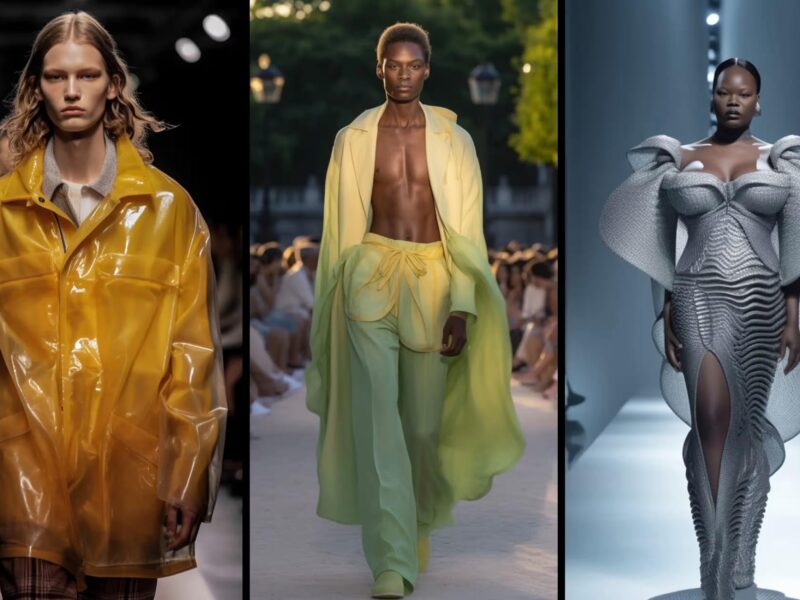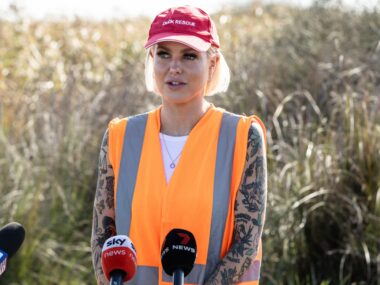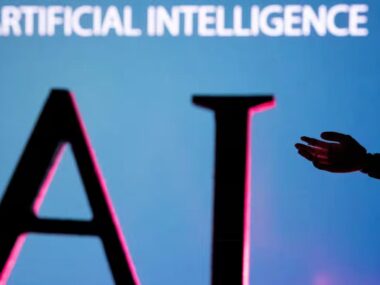Ahead of London Fashion Week, optimists hope new tools can open up an industry that can be elite – and expensive to enter.
The impact of artificial intelligence on the creative industries has sparked widespread concern about job losses and the demise of imagination, and the fashion industry is no different.
However, this month’s London Fashion Week, which commemorates the event’s 40th anniversary, will feature a slew of AI-generated outfits, and industry insiders are increasingly optimistic about what the technology can do for the sector, from improving diversity to shortening the path from design desk to shop floor.
Matthew Drinkwater, the head of London College of Fashion’s Innovation Agency, believes AI will be a “hugely beneficial tool” for creative processes and the industry in general.
“It has opened the door to non-traditional avenues into the fashion industry for those who couldn’t get into it before because, let’s face it, the industry has a reputation for being elitist, exclusive, and expensive to enter.
“However, these technologies enable people from diverse backgrounds to gain a foothold in the sector. “And that feels very new and exciting to me,” he remarked.
Brands such as Heliot Emil, Zara, and H&M are already employing AI to manage supply chains, which they claim supports sustainability by minimizing excess and waste. Many brands are also utilizing AI to aid with the design process, with images of clothing generated from written queries, visualizing various materials and patterns. This enables designers to make informed selections before actually making clothing.
Last year, McKinsey predicted that generative AI, which refers to technology that can produce convincing images, text, and audio from simple human prompts, could add $150 billion to $275 billion (£120 billion to £220 billion) to the operating profits of the fashion and luxury sectors over the next three to five years. Predicting future fashion trends and producing virtual try-ons with AI are also expected to be just around the corner.
Drinkwater and his team have spent years researching how AI could transform the business, including testing generative AI’s ability to produce apparel. “We scraped websites to get a large amount of data so that we could construct outfits from over 40,000 photographs. It was actually incredibly difficult work to accomplish four years ago, but now we open our laptops, even our iPhones, and begin generating photographs pretty quickly,” Drinkwater added.
“So typically, we take stuff which is maybe three to five years away from commercialisation and begin to show those research projects around where the future of the industry might move to,” he said.
In April of last year, Cyril Foiret’s generative AI company, Maison Meta, presented the inaugural AI fashion week in New York, which included a competition for budding designers to build a fashion line using AI. The winners were able to have their collections physically made and sold online through store Revolve. As in other industries, AI has been linked to job layoffs, and detractors argue that creative creativity may be eliminated. However, Foiret contends that there is little to worry.
“AI is a powerful tool that boosts creativity. People who believe that jobs would be reduced should reconsider. We all just need to get used to the tools, but if they are just tools without a person behind them, they are useless,” he remarked.
Arti Zeighami, a former H&M chief data and analytics officer and current senior AI adviser for consulting company BCG, agrees that AI can be used for good in the fashion industry. “Being transparent about AI helps people to not be afraid and allows them to be comfortable and still feel in control, it’s the transformation of the mindset of the human that is important,” he went on to say.
“The AI will evolve as a technology either way we need to evolve alongside with it, but we haven’t come to the terminator stage not yet, at least” .
Mary Towers, the TUC’s AI lead, stated that while AI can be a beneficial tool for creative workers, it should not be used to replace human innovation.
“We need new laws to ensure that all workers in the arts – including fashion – are consulted and properly compensated if their work and intellectual property is used by AI,” she went on to say.
“We’ve already seen performers in the UK have their image, voice, or likeness reproduced by AI technology without their knowledge.” We cannot afford to have this become the standard in other industries. That’s why we urgently need new regulations to protect workers’ innovation and copyright.











